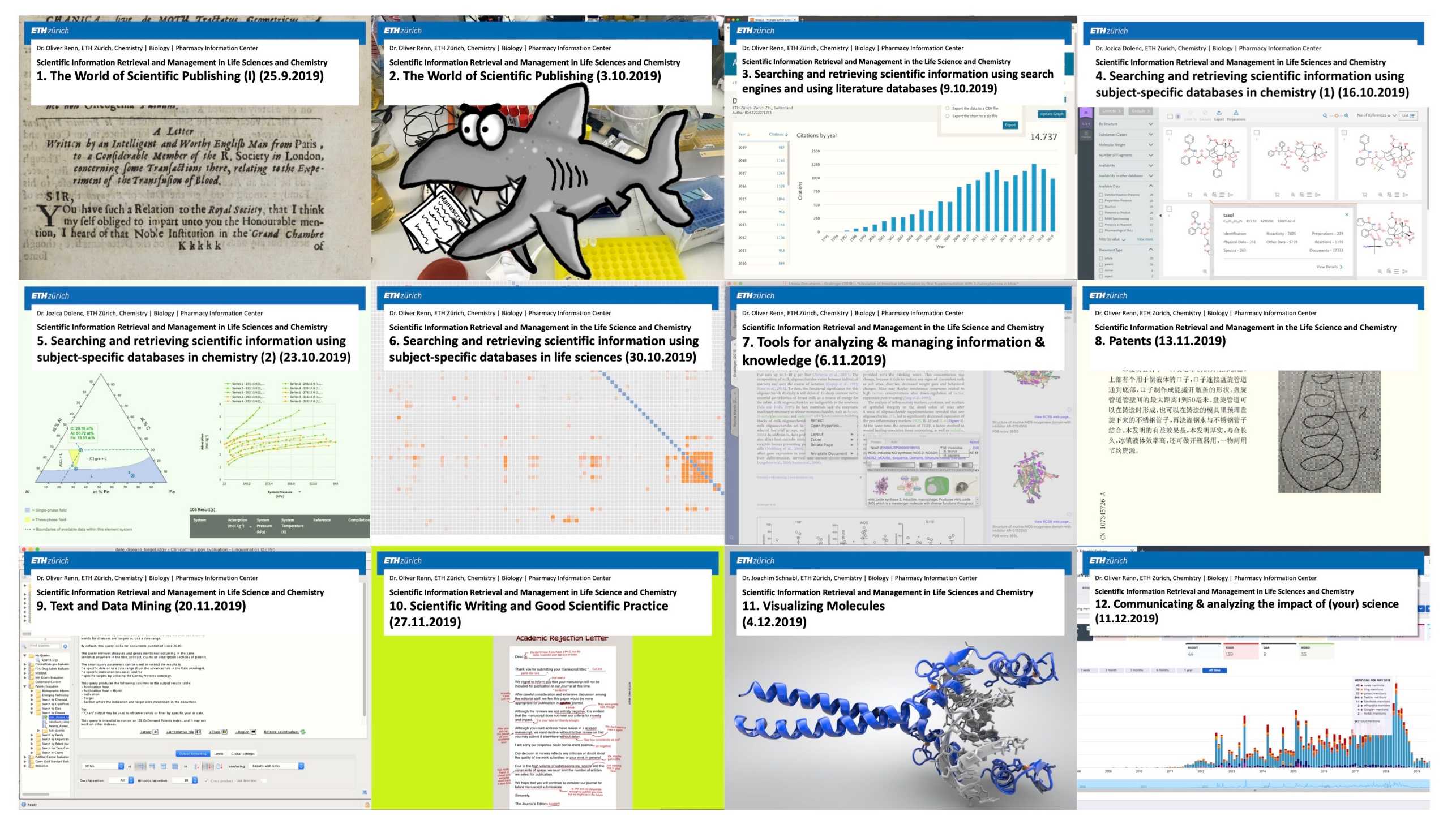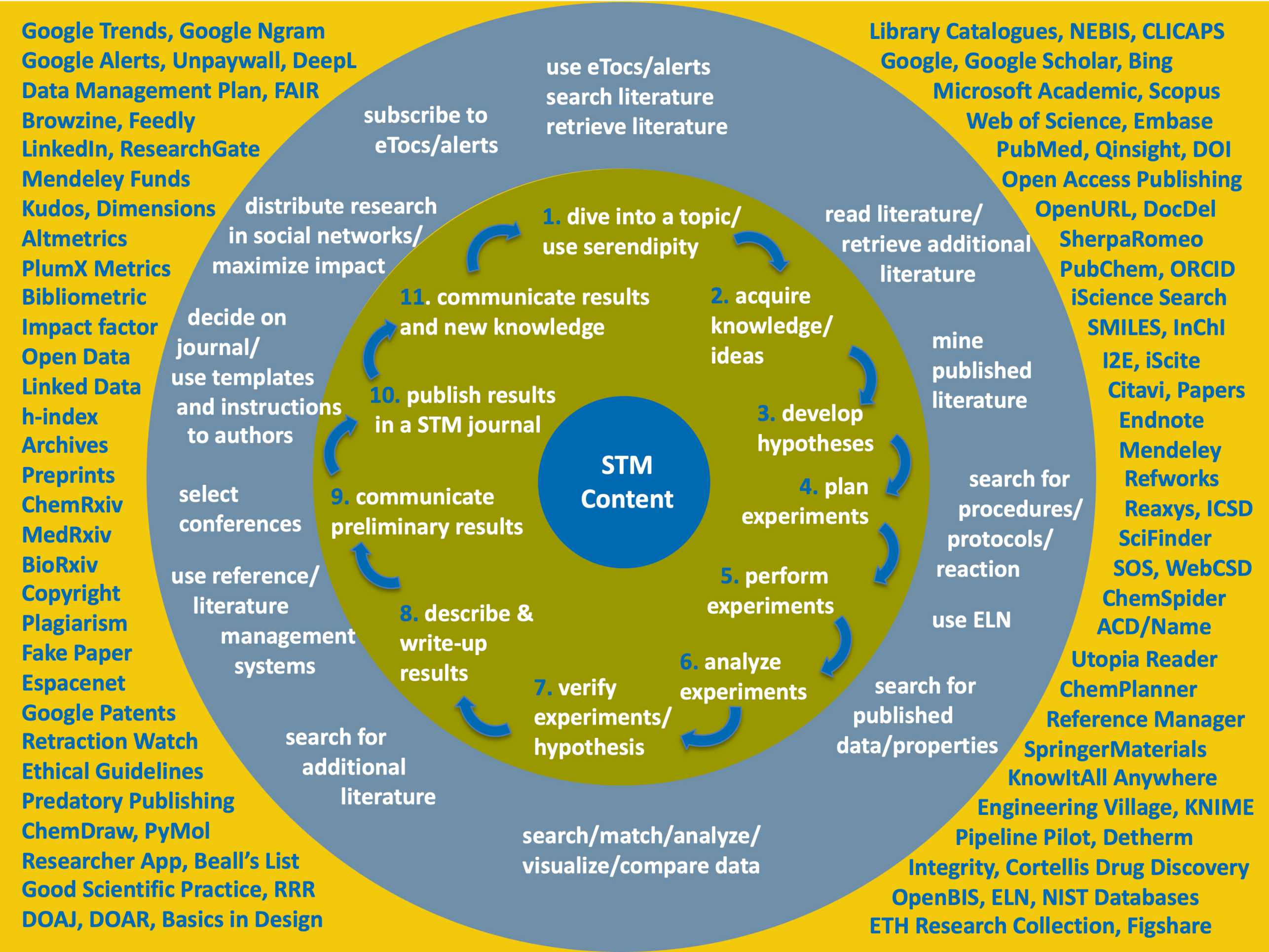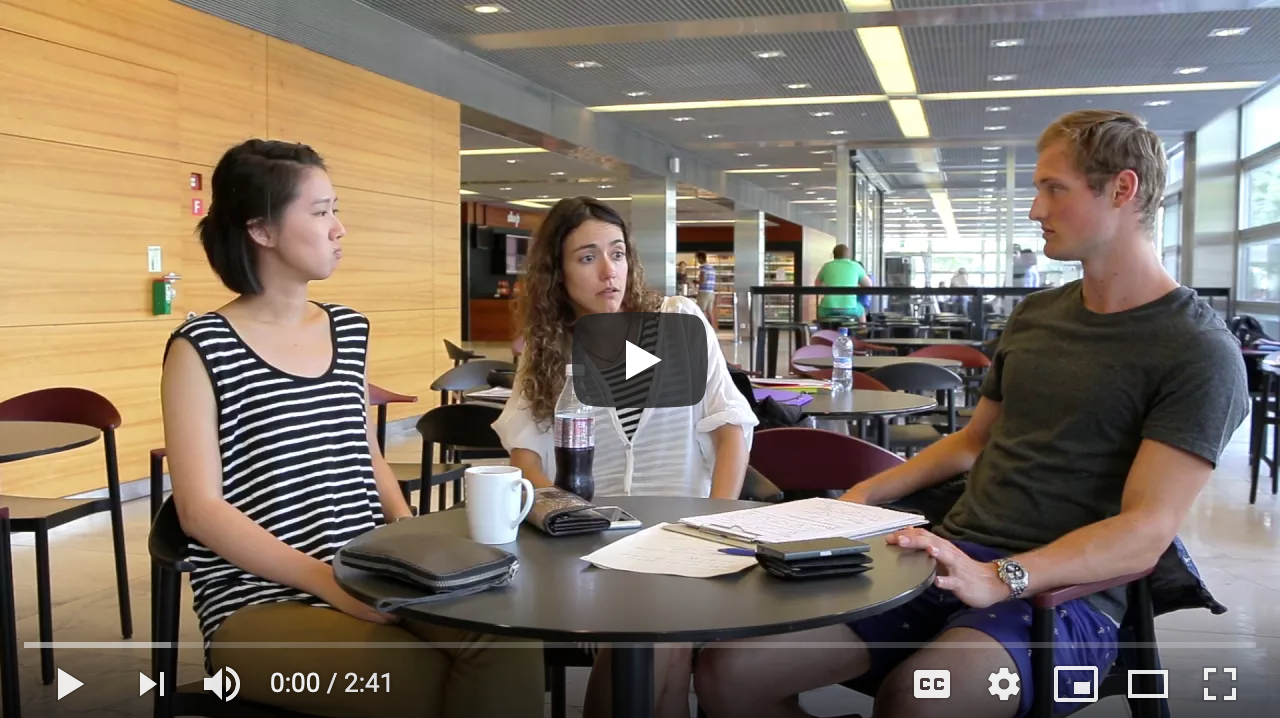Scientific Information Retrieval & Management in Life Science and Chemistry
Living in a digital world, students are expected to be information-savvy already during their studies. However, while subject-related knowledge is part of every curriculum, the knowledge on how to utilize and benefit from today’s possibilities of digital tools is not systematically taught. We have tackled this problem by creating the course “Scientific Information Retrieval & Management in Life Sciences and Chemistry”, which has been successfully offered to doctoral students and postdoctoral researchers since the fall semester of 2014.
The course features a multi-level approach to scientific information. On one hand, we show the big picture, discussing aspects like scientific writing and publishing, critical choice of data sources, patents, visualization and design, data pipelining and knowledge generation, outreach and impact of publications. On the other hand, we highlight an extensive list of field-proven tools and databases that can assist researchers in their day-to-day activities.

Keywords
Course description
Project description
In the course “Scientific Information Retrieval & Management in Life Sciences and Chemistry” we follow a typical research life cycle of doctoral students, mapping each step of the research process to the corresponding steps in terms of information retrieval, discovery, analysis and management, using real-life examples. This results in twelve course units, covering scientific publishing and communication, searching and retrieving scientific information using search engines and subject-specific databases, tools for analyzing, managing and sharing scientific information, including pipelining tools, patent information, text mining, scientific writing and good scientific practice, visualizing molecules, as well as outreach and analyzing the impact of science.
Due to the topics of the course it is obvious that it cannot be taught in the style of a traditional lecture, and not with a script that is valid for years. The course lectures include exploratory learning through live demonstrations of workflows and of comparisons of workflows, retrieved data and information. For some course units, students are required to do exercises in the lecture room; on other occasions they are required to solve problems at home and submit the results electronically. We use elements of flipped classroom teaching, when students have to read literature or test a tool beforehand to discuss it in the next lecture. We also integrate aspects of blended learning, especially if good videos are available that explain concepts or how-tos. Last but not least, we use interactive games and polls in the course, which allow us to anonymously assess students’ knowledge.
As a further highlight, the course features a unique, automatic quality-improvement loop. At the end of the course, students have to write an essay on how the course content enhanced their information workflows, how well their information needs have been met or if certain aspects remained unsolved. This way we learn if and how the students applied the information solutions we have presented but we also get to know new problems, workflows and expectations. Moreover, we get feedback on the quality of our teaching, as well as fresh ideas on how to change the course in the following year to ensure that it will remain up-to-date and meets the evolving information requirements of young researchers.
Video
Contact information
Contact
ETH Zurich
Schweiz

Contact
ETH Zurich
Chemistry | Biology | Pharmacy Information Center
Schweiz

Contact
ETH Zurich
Chemistry | Biology | Pharmacy Information Center
Schweiz

Contact
ETH Zurich
Chemistry | Biology | Pharmacy Information Center
Schweiz

Additional links
chevron_right Project websitePublications
- externe Seite call_made Oliver Renn, Jozica Dolenc, Joachim Schnabl: Getting digital tools into students’ and researcher ́s workflows. Proceedings of the IATUL Conferences, 2018, 1–12,
- externe Seite call_made Oliver Renn, Jozica Dolenc, Joachim Schnabl: Das Framework for Information Literacy for Higher Education – in die Praxis umgesetzt! o-bib, 2018, 262–275
- externe Seite call_made Jozica Dolenc, Joachim Schnabl, Oliver Renn: Turning a library into a skill center for scientific information and knowledge management. Nordic Journal of Information Literacy in Higher Education, 11(1), 2019
- chevron_right Oliver Renn: Instilling information literacy. Zukunftsblog ETH Zürich | Digitalisation 13.9.2019

